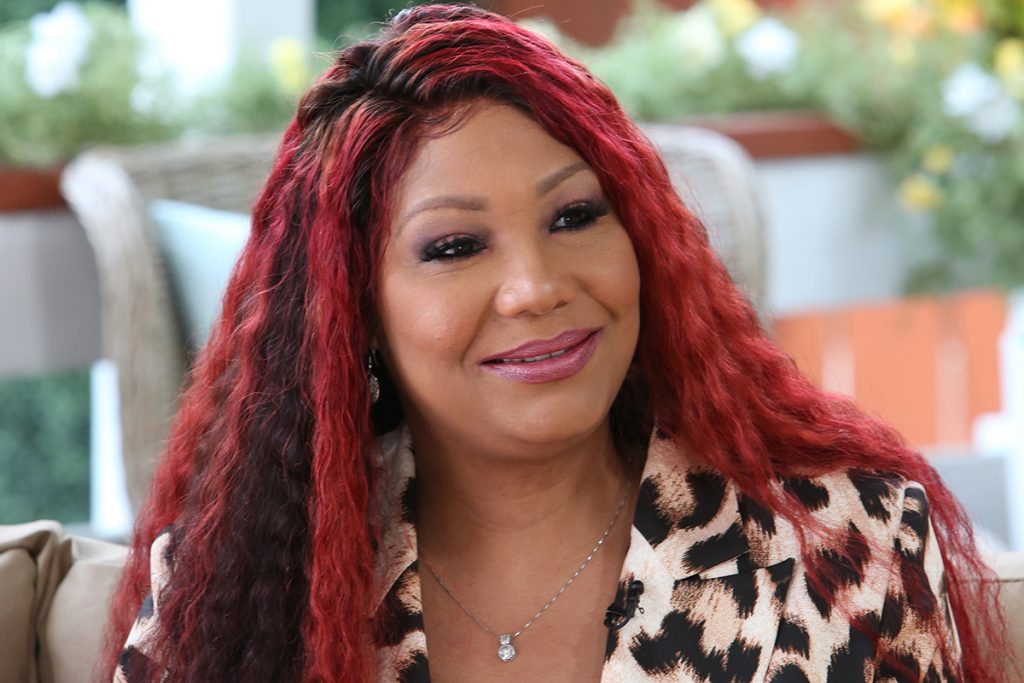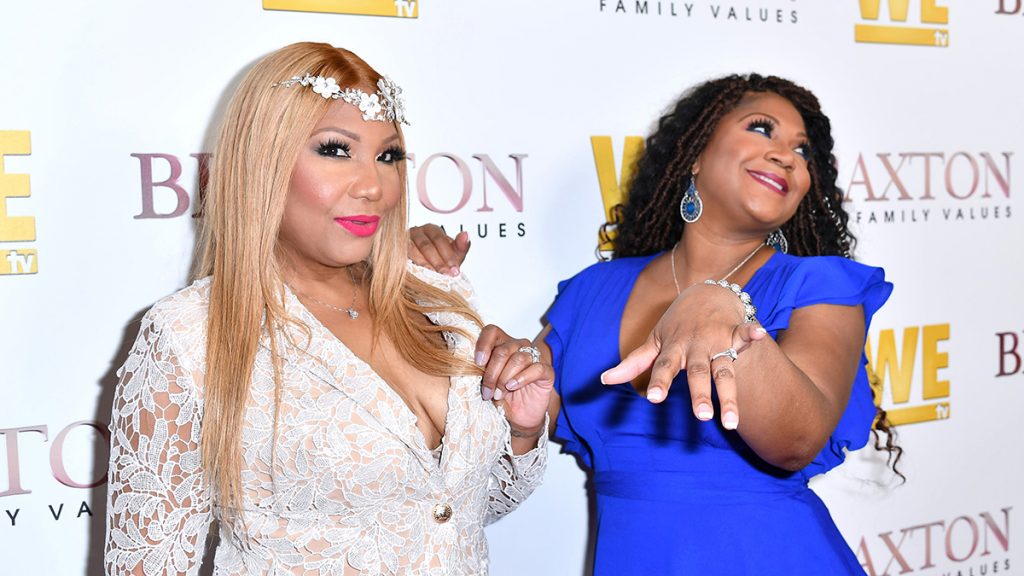Coping With Losing a Loved One to Cancer
- About two weeks have passed since Traci Braxton, 50, died after a hard-fought battle with esophageal cancer, and her family still can't believe she's gone.
- During an interview on Tamron Hall, Toni Braxton, 54, spoke publicly for the first time about the untimely death of one of her younger sisters: “Did I dream it?”
- Whether it is a spouse, a family member or a friend, grief is inevitable and essential when you're forced to say goodbye to a loved one, especially if you're losing that person to cancer.
During an interview on Tamron Hall, Toni Braxton, 54, spoke publicly for the first time about the untimely death of one of her younger sisters.
Read MoreShe did, however, touch on the fact that she, Traci, Tamar, Towanda and Trina as sisters, and sisters fight. But that doesn't mean they don't love each other.
"We're sisters, we're always gonna fight," Toni said. "That's what sisters do, OK, it's a rite of passage to fuss and fight but in the end, we're always there. We can be fussing and fighting with each other even on the show and we'd be right there, 'OK, I'm bringing the kids over' and not talk to each other, but we'll be cooking together."
Traci Braxton was the third child of her parents Michael and Evelyn, according to The New York Times. She was best known for her appearances on Braxton Family Values, a reality television show featuring her sisters Tamar, Toni, Towanda and Trina, as well as their brother Michael, and their families. The show first aired in 2011 and ran for seven seasons before Towanda Braxton confirmed in February that network WE tv had canceled the show.

Coping With Losing a Loved One to Cancer
Whether it is a spouse, a family member or a friend, grief is inevitable and essential when you're forced to say goodbye to a loved one, especially if you're losing that person to cancer.
There's no one way to cope, but, in a previous interview with SurvivorNet, widower Doug Wendt shared his thoughts on the grieving process after losing his wife to ovarian cancer.
"We're never gonna move on, I don't even think I want to move on, but I do want to move forward," Wendt says. "That's an important distinction, and I encourage anybody who goes through this journey as a caregiver, and then has to face loss, to think very carefully about how to move forward."
While it is unknown who was Traci Braxton’s caregiver during her final weeks (most likely her husband Kevin Surratt), the feelings Wendt describes can surely be felt by anyone who has lost sometime to cancer, including Toni Braxton losing her sister.
Camila Legaspi, in a previous interview with SurvivorNet, shared her own advice on grief after her mother died of breast cancer. For her, therapy made all the difference.
"Therapy saved my life," Legaspi said. "I was dealing with some really intense anxiety and depression at that point. It just changed my life. Because I was so drained by all the negativity that was going on, going to a therapist helped me realize that there was still so much out there for me, that I still had my family, that I still had my siblings."
Understanding Esophageal Cancer
The esophagus is a tube that goes from the throat to the stomach and plays an important role in your digestive system. When cancerous cells form inside the tissues of this organ, you have esophageal cancer.
Overall, this cancer is rare, often difficult to diagnose and more common in men in the United States. Of more than 20,000 cases of esophageal cancer expected to be diagnosed in the U.S. this year, about 4,000 will be diagnosed in women, according to the American Cancer Society.
It is also important to note that some people confuse esophageal cancer with throat cancer, but they are, in fact, different. The cause of most esophageal cancers is unknown though some risk factors like tobacco use can increase the likelihood of developing this cancer while the human papillomavirus, a sexually transmitted virus also known as HPV, is known to cause most throat cancers.
Dr. Brendon Stiles talks about treatment options for patients with esophageal cancer.
Dr. Raja Flores, chairman of thoracic surgery at the Mount Sinai School of Medicine, previously told SurvivorNet that esophageal cancer is often diagnosed in the later stages, meaning it has spread to distant parts of the body. It remains unclear what stage of disease Traci Braxton had reached, as she battled cancer in private.
"Of (all the cases diagnosed in the U.S. per year), only about 1,000 get surgery because the majority of them are identified at such a late stage," he said.
Esophageal cancer is often diagnosed so late because its symptoms often mimic that of other diseases including weight loss, difficulty swallowing and heartburn (also known as acid reflux), according to Dr. Brendon Stiles, chief of thoracic surgery at Montefiore Medical Center.
Things like acid reflux are generally not cause for any serious concern, but it is important to communicate any issues with your doctor. The more proactive you are about your health, the more likely you are to have an early diagnosis if something serious were to arise.
Traci Braxton's Private Cancer Battle
It has been reported that Traci Braxton was privately battling cancer. And as previously stated, the stage of her cancer remains unknown, as well as how long she was battling the disease for.
Battling cancer is an extremely personal experience, and so is choosing who to tell about your diagnosis. For some people, it's a no-brainer to share their struggle and absorb as much support as possible, while for others, sharing the news isn't so casual.

Dr. Marianna Strongin, a licensed clinical psychologist and founder of Strong In Therapy Psychology, previously told SurvivorNet that whether someone shares this heavy news is their personal preference.
"I recommend sharing, I'm a therapist," Strongin said with a laugh, "but to whom and how many people is up to the person (with cancer)."
Like Braxton, there are plenty of people who have chosen not to share their cancer battle publicly. While Strongin says that she encourages sharing, she also recognizes there's a personality factor at play when it comes to whether a person shares this deeply personal news; some people are more willing to share, and some are just more private, Strongin added. The difference is in how the information is processed.
Related: Finding Your Support System: Heidi Kugler's Survivor Story
But remember, there's no right way to accept your diagnosis. There's no handbook, there's no wrong way, either. So, regardless of what you decide, "everyone should focus on what makes them feel good," Strongin said.
"There's a difference between telling people 'I'm sick' versus 'I was sick, and I think a lot of people want to wait for that moment," Strongin added.
But the caveat in these situations, she said, is that you want to make sure sharing, if you choose to, provides you with support; a strong support system is fundamental when it comes to battling cancer.
"If it creates anxiety and burden and worry, that's something to look at," Strongin said; added anxiety and worry during a cancer battle is the last thing you need.
Do what makes you feel good; it is your fight and only you know the right way to navigate through it.
Contributing: Abigail Seaberg
Learn more about SurvivorNet's rigorous medical review process.


